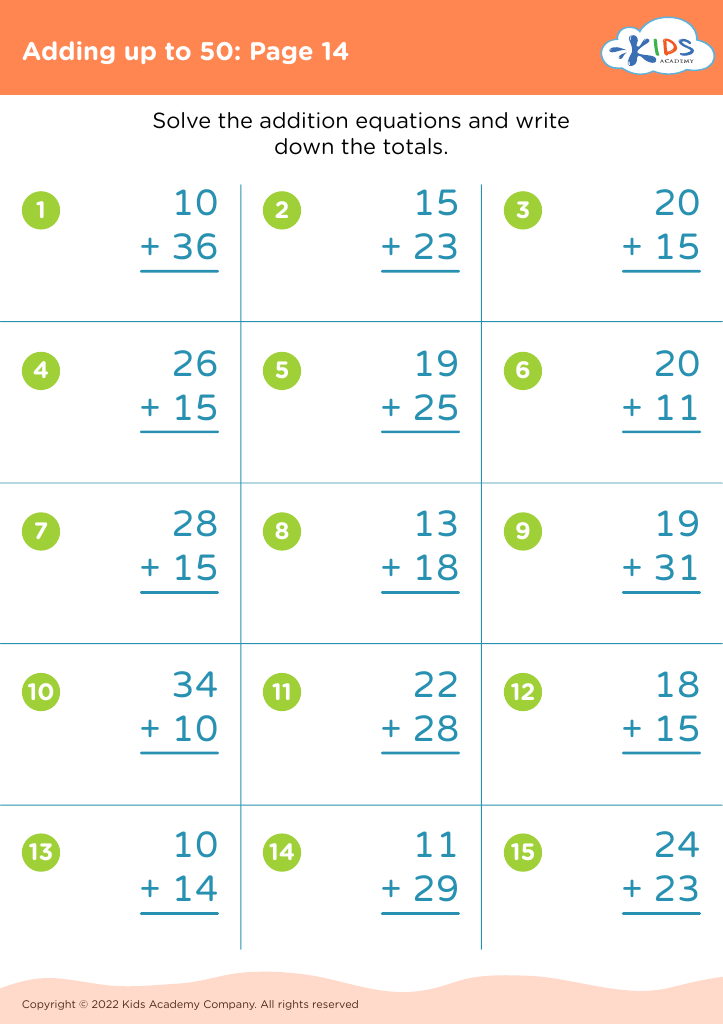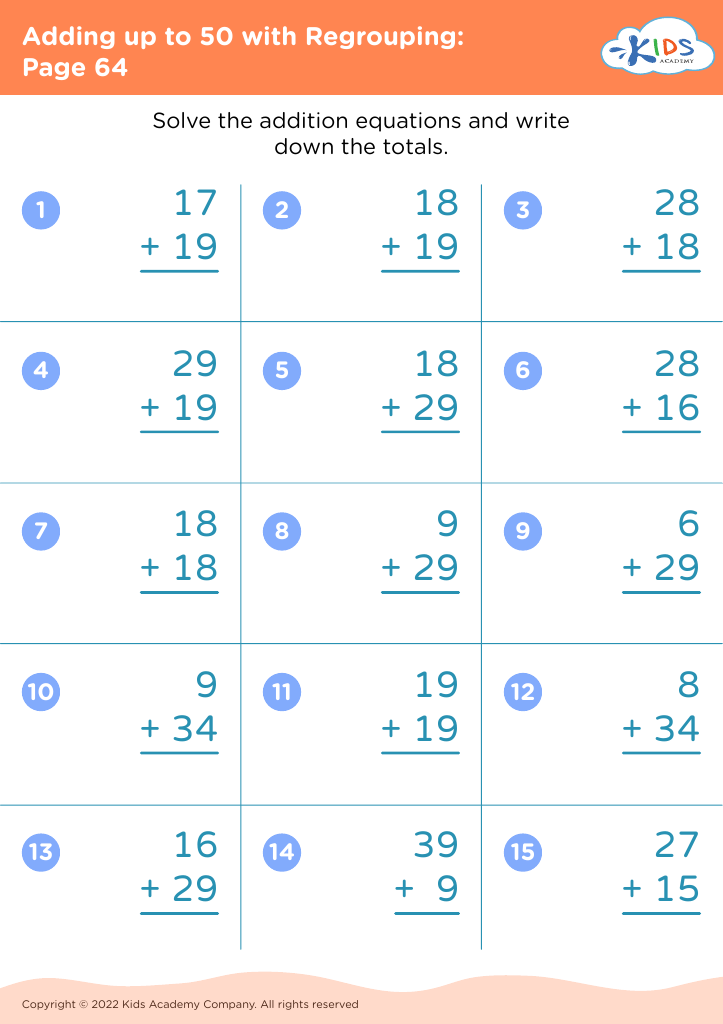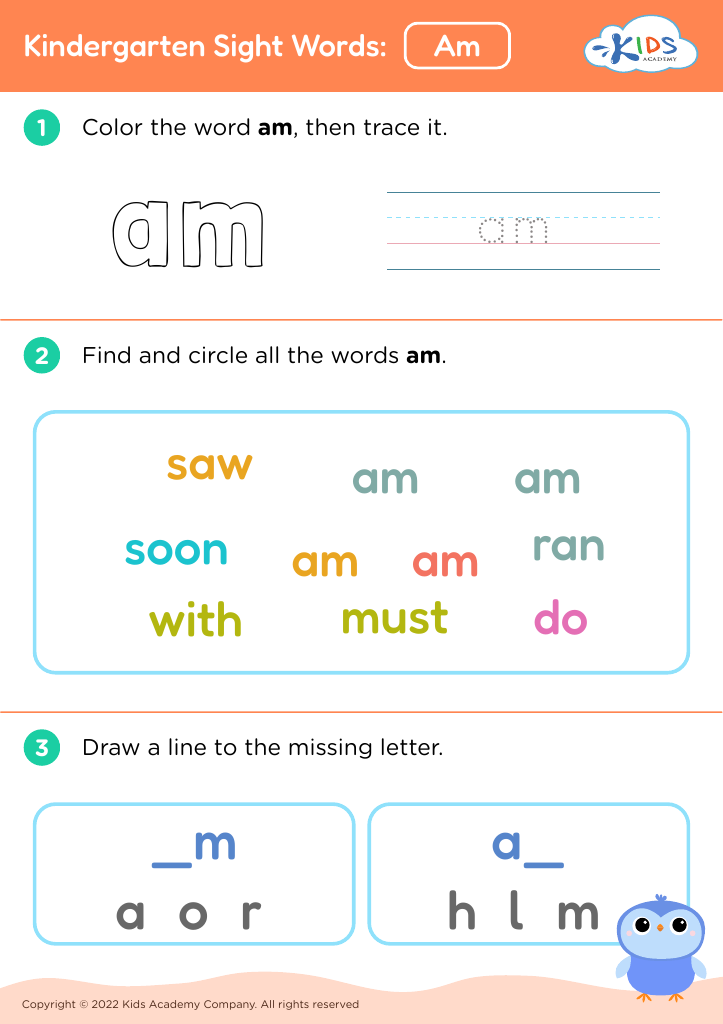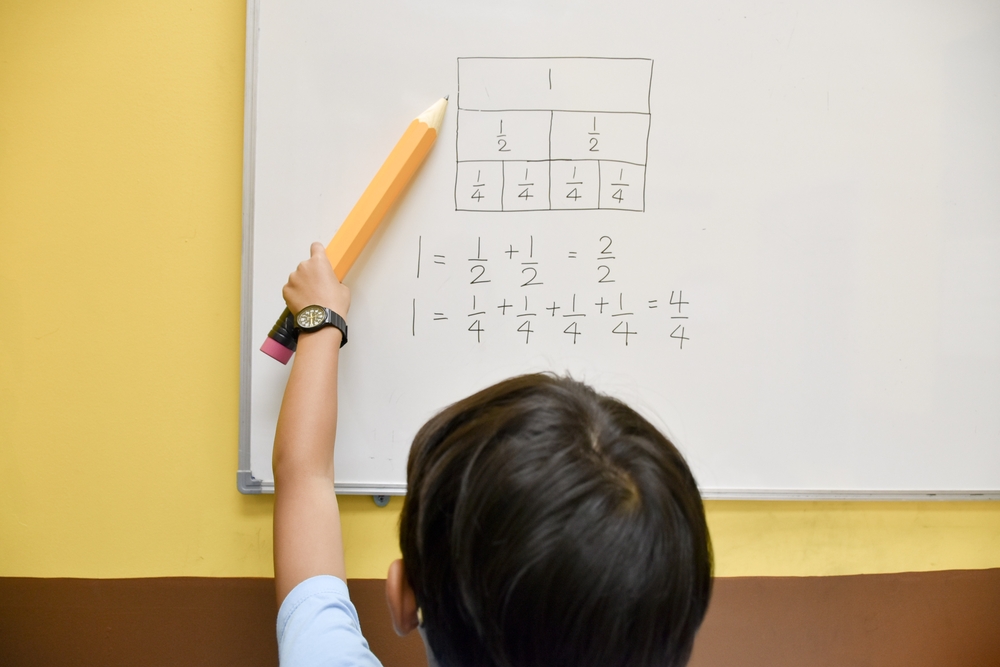Math skills improvement Worksheets for Ages 5-7
8 filtered results
-
From - To
Enhance your child's math abilities with our engaging and effective Math Skills Improvement Worksheets for ages 5-7. Designed to make learning fun, these printable worksheets cover essential skills including counting, addition, subtraction, and basic geometry. With colorful illustrations and easy-to-follow instructions, our resources are perfect for young learners developing foundational math concepts. Created by educational experts, these worksheets align with school curricula, ensuring your child gains the confidence and proficiency needed for academic success. Start boosting your child's math skills today by downloading our comprehensive and free worksheets on Kids Academy!
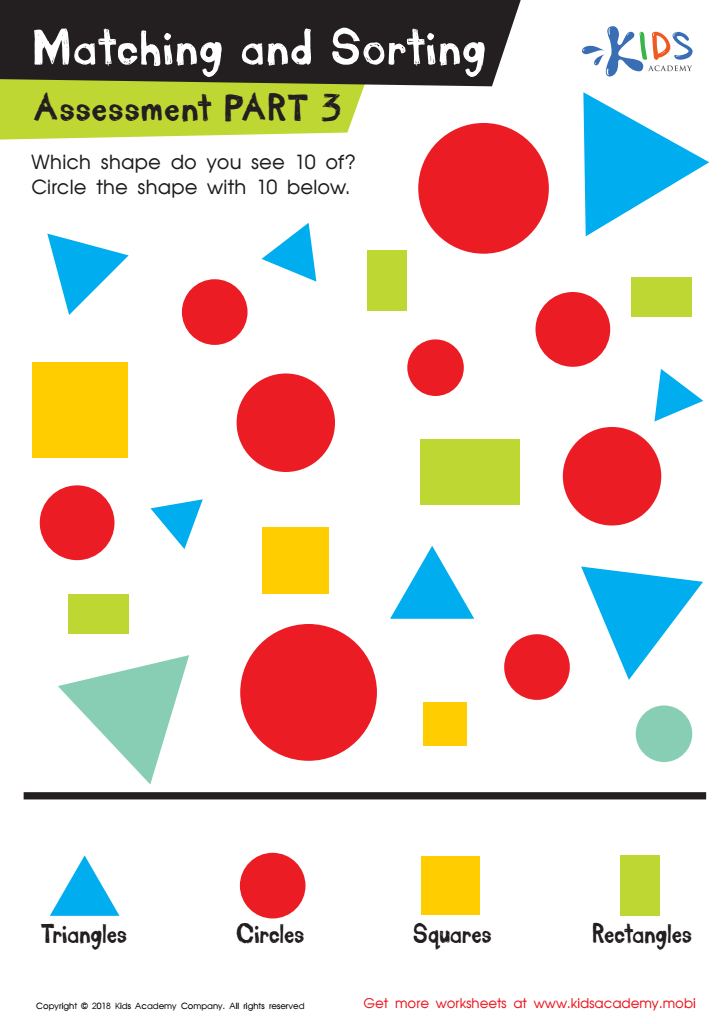

Matching and Sorting for Kindergarten: Assessment 3 Worksheet
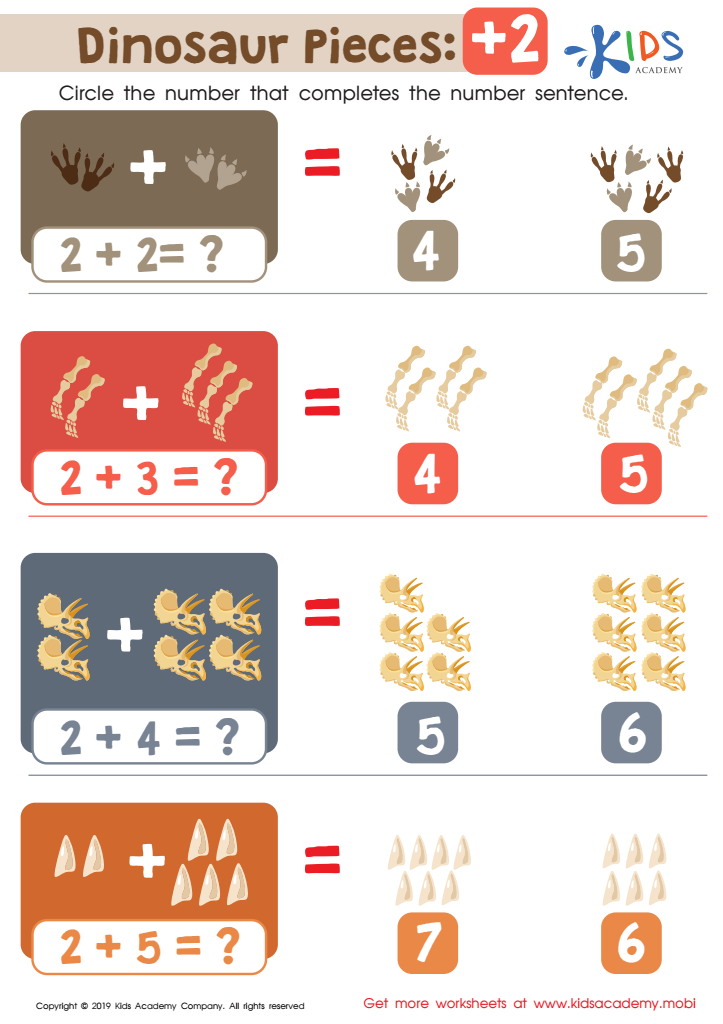

Dinosaur Pieces: +2 Worksheet
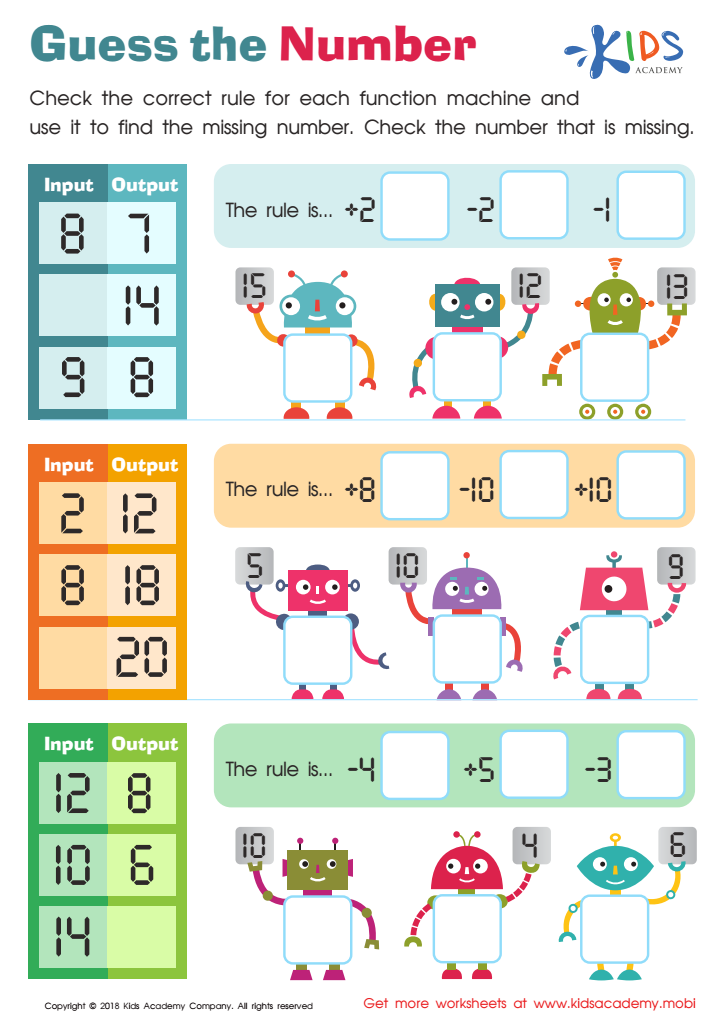

Guess the Number Worksheet
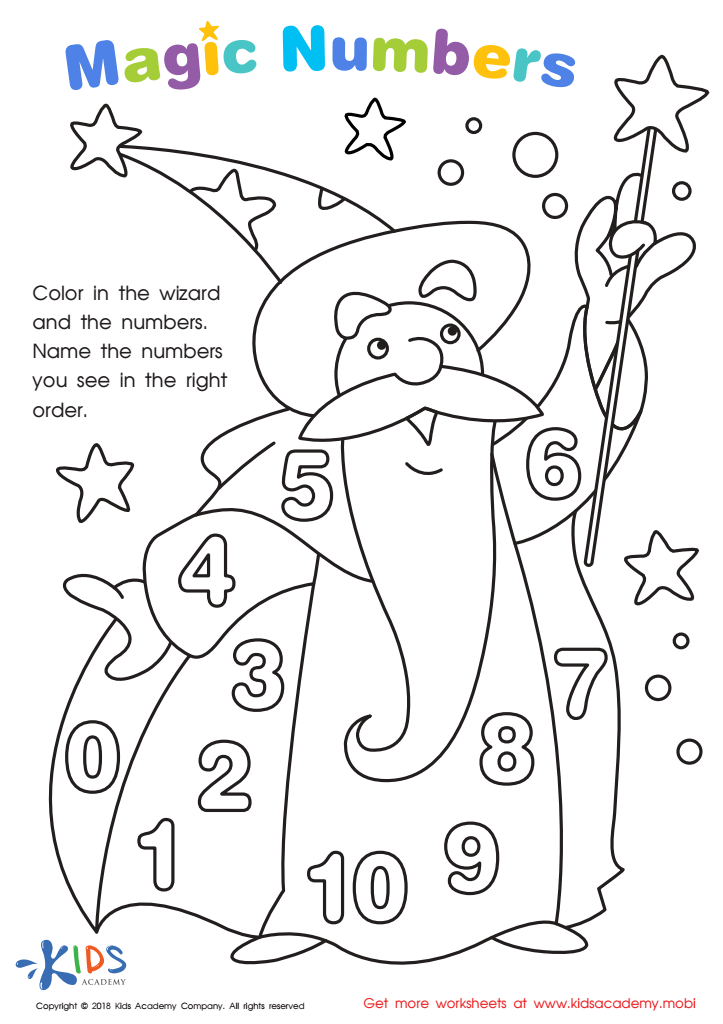

Magic Numbers Worksheet
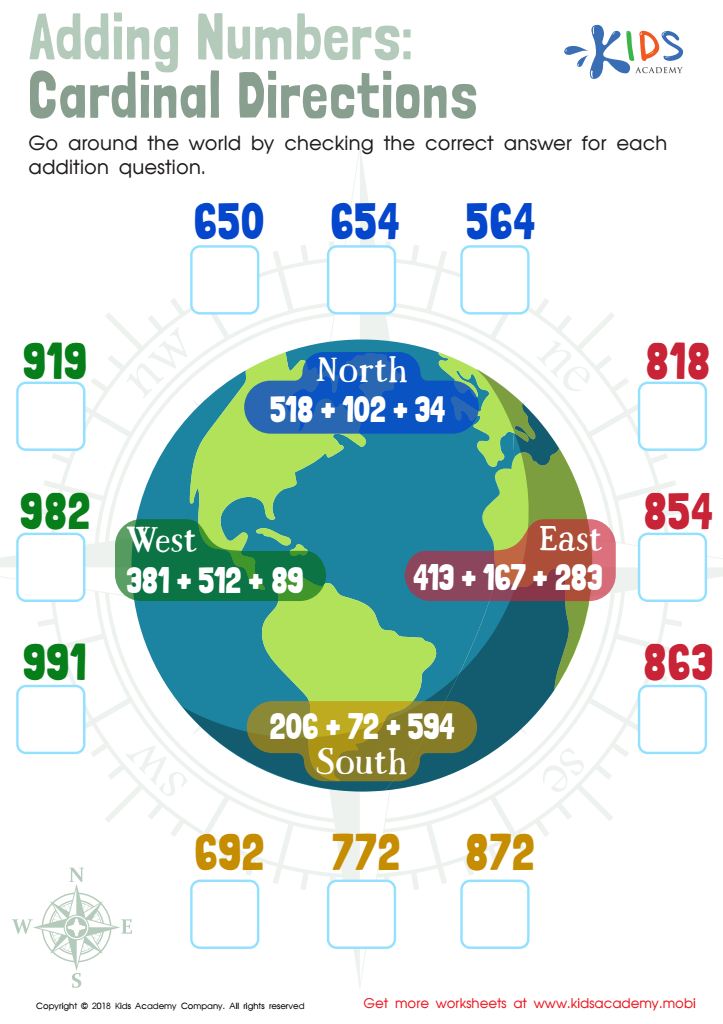

Adding Numbers: Cardinal Directions Worksheet
At ages 5-7, children are in a critical period for cognitive development, and strong foundational math skills are crucial for their future academic success and overall intellectual growth. Firstly, math is integral to everyday tasks and problem-solving; thus, early math skills empower children to navigate the world more effectively. For instance, understanding numbers, patterns, and basic arithmetic helps kids make sense of time, money, and measurements.
Moreover, early math competency is foundational for advanced academic subjects in later grades. Research shows that early math skills are strong predictors of future academic achievement, not just in mathematics but also in reading and other areas. This is because math promotes logical thinking, attention to detail, and systematic problem-solving skills.
Socially, math readiness can boost a child's confidence and willingness to participate in classroom activities. Children who struggle with math early on might develop anxiety around the subject, which can persist and hinder their academic journey. Conversely, early success in math can foster a positive attitude towards learning and intellectual curiosity.
Finally, as our world increasingly relies on technology and data-driven decision-making, future job markets will demand strong math-related skills. Encouraging math proficiency from an early age sets children up for success in these competitive fields, ensuring that they are well-prepared for future opportunities.

 Assign to My Students
Assign to My Students
